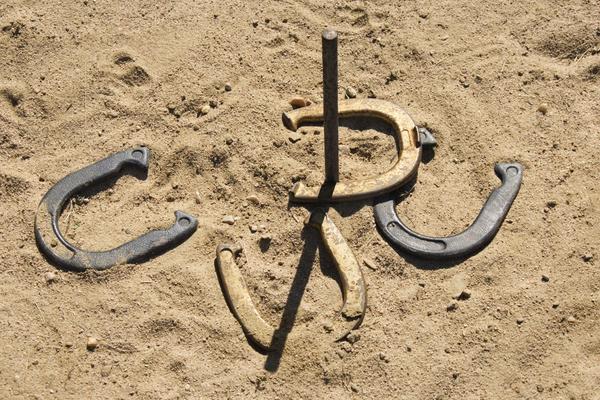 Not to upset anyone, but I am not particularly a Beatle’s fan, and I never was. The emotional and spiritual journey of the “fab four” never really appealed to me – though I cannot deny they were talented young men a generation ago, and they cut new ground in their lyrics and musical scores. I was interested to learn, however, that the last song the four recorded together was a song that captured the tumultuous stages of their break-up as a band, and highlighted something we will see in our text for this lesson. Let me explain:
Not to upset anyone, but I am not particularly a Beatle’s fan, and I never was. The emotional and spiritual journey of the “fab four” never really appealed to me – though I cannot deny they were talented young men a generation ago, and they cut new ground in their lyrics and musical scores. I was interested to learn, however, that the last song the four recorded together was a song that captured the tumultuous stages of their break-up as a band, and highlighted something we will see in our text for this lesson. Let me explain:
The song called “The Long and Winding Road” was primarily written by Paul McCartney as the tenth track on the Beatles’ album “Let It Be”. It became their last “chart topping” song in the US for the group back in 1970, and was the last single released by the quartet while all four were still alive. McCartney recalled later that the song was composed at his farm in Scotland, and it reflected the growing tension in the group as it was coming apart. The original recording was a piano piece, but it became heavily mixed in the studio using 18 violins, four violas, four cellos, three trumpets, three trombones, two guitars, and a choir of 14 women – none of which was approved by McCartney before the album release. In fact, it was in direct contrast to the Beatles’ stated intentions for a “real” recording. When McCartney first heard the mixed version, he blew up and about a week later announced the Beatles’ breakup.
“The Long and Winding Road” lyrics leave you feeling like a man knows where he will end up, but nevertheless feels like he is floundering on the journey…The song says:
The long and winding road that leads to your door – Will never disappear. I’ve seen that road before it always leads me here – Leads me to your door. The wild and windy night that the rain washed away – Has left a pool of tears crying for the day. Why leave me standing here? Let me know the way! Many times I’ve been alone and many times I’ve cried. Anyway you’ll never know the many ways I’ve tried. And still they lead me back to the long and winding road.
It doesn’t take psychoanalysis to recognize that McCartney was hurting by the pending breakup, but still somewhat hopeful that things would somehow lead the men back together – as though it was their collective destiny. He knew they should be together, but he didn’t see how the path was going to lead them back to that place.
In some ways, that is exactly the sense the Apostle Paul must have felt as he sat in one imprisonment after another – not sure how he was going to get to Rome – where Jesus told him he was going. In a strange way, God was teaching Paul through a series of experiences a truth that He decided to explain to us in the record of His Word…
Key Principle: God’s will for us is not only about us – it also fits into His larger plan.
Christians need humility when looking at the experiences of their life. We often don’t know where things are going, even though we know where all things will end. The Bible offers us the ultimate destination to world history, and to our own final state – but the path to get there is not always clear. We need to be careful not to oversell our understanding of events as they come across our path. Before I get into the text for the lesson, let me offer an example that I believe will help to set the stage. The story came from a missions conference I attended many years ago…
Back in the 1970’s a young, unmarried woman went to Bible school because she believed God called her to a life in foreign missions. By all accounts, she did well in school, and she prepared very carefully for the field, reading everything possible on the African people group to whom she was assigned by her mission board. She traveled from church to church on deputation, raising the funds to go to the field. That process took almost two year, but she was nearing the end of it when she received life-changing, tragic news. Her younger sister and her husband had dropped off their three children at a baby sitter’s house, and journeyed off on a “date night” together in Texas, when a drunk driver plowed through a red light and crushed their car. Both were pronounced dead on the scene. Our young mission bound woman lost her only sibling, and she was the only family left, as they had lost their parents a few years before. Without any other family, the three children were heading for emergency foster care. The young missionary cancelled her plans to go to the field, and on the advice of the mission board, she stayed in Texas and raised her sister’s three wonderful children. Her heart was broken. Her family was gone. Her dreams and plans were crushed. Yet, right in front of her was a new family – three little children that needed love to get through the blow of losing both parents and having their whole lives changed. She poured herself into loving and raising the three – and each ended up as missionaries on an international field. She never went to foreign soil – but her legacy was multiplied by pouring vision and love into the field God gave her. God’s will was evident, and He used her training, passion and preparation in a way very different than she had planned for Him to use it all. She knew that was God’s right.
While that story sinks in, let’s drop our eyes into the scene found in the Book of Acts, when the Apostle Paul faced a mob but was assured by Jesus that he was Rome bound. The encounter with Jesus, like the one long before at Corinth that kept him ministering during the second mission journey settled Paul – he would not die at the hands of the Sanhedrin. His time was not near; some of his work for the Kingdom was still incomplete. At the same time, the path Jesus took him on was neither straight nor easy. Why not? The answer lies in the truth that God was doing other things – He was also providing solutions to other problems and addressing other needs while dealing with Paul in his series of personal defenses of his faith, imprisonments and delays to be heard.
In Acts 23, Paul stood to defend himself before what had to be considered, from the Jewish perspective, the premiere educational and religious institution of his day. These were ostensibly the leaders of God’s people, yet nothing was as it seemed that day – and it often isn’t in our journey, either. God was at work staging the events – and Paul had to learn to lean on God’s provision – no matter how “long and winding” the road.
Look at how things were so different than they appeared to be…
What looked like a setback in Paul’s arrest was actually God providing a paid bodyguard service for him to deliver a message to the Jewish leadership (Acts 23:1-10).
At this stage in the story, Paul had been “rescued” by Roman guards out of a mob scene at the Temple, taken to the garrison building, and held overnight as much for his own protection as to stop any rioting in the city. In the morning, the Apostle was walked under guard to the Sanhedrin chamber – likely beneath the southern porch of the Temple in the chamber between the two “Hulda Gates”, still visible (though closed) on the south retaining wall. We “enter the scene” with Paul on a witness dais, while the assembly of leaders was gathering in a less formal array – for not everyone had their full regalia on, signifying their various positions.
Acts 23:1 Paul looked straight at the Sanhedrin and said, “My brothers, I have fulfilled my duty to God in all good conscience to this day.” 2 At this the high priest Ananias ordered those standing near Paul to strike him on the mouth. 3 Then Paul said to him, “God will strike you, you whitewashed wall! You sit there to judge me according to the law, yet you yourself violate the law by commanding that I be struck!” 4 Those who were standing near Paul said, “How dare you insult God’s high priest!” 5 Paul replied, “Brothers, I did not realize that he was the high priest; for it is written: ‘Do not speak evil about the ruler of your people.’”
Paul had been away from Jerusalem for a long time, and he wasn’t keeping up with the changes on the roster of Temple leadership. Add to that the fact that the High Priest was apparently not dressed for the occasion, so it seems Paul simply “goofed” and called the High Priest a name – a definite “faux pas” for such an occasion. Thankfully, Luke included the incident (no doubt shared in detail by Paul in embarrassment shortly later), so that Paul could reflect a simple truth: Even when God was using him, Paul still needed to be humble and guarded about the way he shared his message.
I love that the Bible doesn’t hide his mistake, and since Luke was not there – it was Paul’s choice not to do so. Paul reacted to a face slap, apparently thinking that the one who ordered it was violating the rules of the debate chamber – not recognizing he was the High Priest, who could make such an order and must never be addressed in a harsh tone. When the men scolded Paul, the Apostle apologized and admitted his error – he simply didn’t know that Ananias was High Priest at that time, or he had never seen the man in person. He went even further and showed that he understood the Law concerning his wrong behavior –verbally admitting that was an outrageous thing to do. That settled the room, as they saw he was not trying to be boisterous and rebellious.
There are two important thoughts I want to highlight about this brief exchange. First, we must be careful to be humble even when what we are saying is right, and what they are saying is wrong. Many believers spend time learning an apologetic of the faith, and become emboldened to speak truth in difficult circumstances – that is a good thing. At the same time, we who spend so much time around other believers need to be very careful about how we sound, and how we react in particular, to the world. The best evidences are lost in discourteous behavior.
I mentioned in the last lesson the idea that we should not enter a public discussion, such as that on social media sites, and simply “bomb them” with what is obvious to us – “But God’s Word says it, so that settles it” – kind of language. We need to take the time to carefully show why the instruction of the Word has proven itself reliable and worthy of heeding in the past. Truth has a track record of helpfulness. That record helps people connect to the idea, even if they aren’t believers – and that bridge may lead them to connect to the Biblical idea’s author – God Himself. Even more, let me raise a specific caution flag about how you and I answer when being “struck in the face”. The unanticipated response, and especially the cruel one can drive us to over-react, and we must understand that is ever a temptation. If we do step out of line, we should be humble and accept correction. Meekness is “power under control” – and Jesus said the meek are blessed. In fact, in all of the Gospel accounts, the only self-description of His character Jesus offered was that word…”I am ‘meek’ and lowly of heart.”
A second truth can be gleaned from the short exchange. We need to learn that God isn’t always doing what we think He is! Think of it! There is certainly irony in the “Apostle to the Gentiles” getting a Roman escort to the Sanhedrin that was currently accusing him of taking a Gentile into the holy precinct of the Temple. This account drips with irony! They had Gentiles in their chambers, but Paul never did. Yet they accused him!
Acts 23:6 Then Paul, knowing that some of them were Sadducees and the others Pharisees, called out in the Sanhedrin, “My brothers, I am a Pharisee, descended from Pharisees. I stand on trial because of the hope of the resurrection of the dead.” 7 When he said this, a dispute broke out between the Pharisees and the Sadducees, and the assembly was divided. 8 (The Sadducees say that there is no resurrection, and that there are neither angels nor spirits, but the Pharisees believe all these things.) 9 There was a great uproar, and some of the teachers of the law who were Pharisees stood up and argued vigorously. “We find nothing wrong with this man,” they said. “What if a spirit or an angel has spoken to him?” 10 The dispute became so violent that the commander was afraid Paul would be torn to pieces by them. He ordered the troops to go down and take him away from them by force and bring him into the barracks.
God sent Paul with a specific message to give to the Sanhedrin leadership – and it was successfully delivered. The message was that Jesus’ resurrection was their key offense, but not all Jews disagreed with it. That belief didn’t put Paul and other Messianic believers “outside” of Judaism – so they needed to be careful about tossing them all away as though they were not faithful Jews. Some who were not believers began to defend Paul, and the meeting escalated. The Roman commander stepped in and “pulled the plug” on the meeting.
Yet that is not the only thing that was not as it appeared…Paul was whisked away to a quiet place, his heart pumping fast from the whole highly-charged incident. Eventually, he settled down and the day passed by.
What looked like an arrest was actually a guarded and secure meeting space to meet with God (Acts 23:11).
Follow Paul down the hall to a place to rest, and Luke recorded what happened next…
Acts 23:11 The following night the Lord stood near Paul and said, “Take courage! As you have testified about me in Jerusalem, so you must also testify in Rome.”
The Roman tax sesterces provided a bed in seclusion for Paul to have a meeting with Jesus. That simple verse reminds me of how Shadrach, Meshach and Abednego got a private meeting hall provided by Nebuchadnezzar in Daniel 3. Now it’s true, the meeting hall looked like a fiery furnace – but nevertheless God provided a place at government expense to meet the Savior and have a chat. Here God did it again!
What looked like a discouraging abandonment by friends and family was actually the stage for an encouraging opportunity to show hidden support (Acts 23:12-15).
Acts 23:12 The next morning some Jews formed a conspiracy and bound themselves with an oath not to eat or drink until they had killed Paul. 13 More than forty men were involved in this plot. 14 They went to the chief priests and the elders and said, “We have taken a solemn oath not to eat anything until we have killed Paul. 15 Now then, you and the Sanhedrin petition the commander to bring him before you on the pretext of wanting more accurate information about his case. We are ready to kill him before he gets here.” 16 But when the son of Paul’s sister heard of this plot, he went into the barracks and told Paul.
We know much about Paul and his companions, but little about his extended family. Interestingly enough, in this one instance we see one of his nephews saving Paul. The plot had to bother him a bit, but after all – this wasn’t exactly new to him. He had been dodging men who wanted his head for years! The encouragement was that God used his family – however distant to him in belief at the time – to send a message of rescue. Yet, there is more…
What looked like a threat to his life was actually a select invitation to an otherwise “closed” palace (Acts 23:17-24).
Acts 23:17 Then Paul called one of the centurions and said, “Take this young man to the commander; he has something to tell him.” 18 So he took him to the commander. The centurion said, “Paul, the prisoner, sent for me and asked me to bring this young man to you because he has something to tell you.” 19 The commander took the young man by the hand, drew him aside and asked, “What is it you want to tell me?” 20 He said: “Some Jews have agreed to ask you to bring Paul before the Sanhedrin tomorrow on the pretext of wanting more accurate information about him. 21 Don’t give in to them, because more than forty of them are waiting in ambush for him. They have taken an oath not to eat or drink until they have killed him. They are ready now, waiting for your consent to their request.” 22 The commander dismissed the young man with this warning: “Don’t tell anyone that you have reported this to me.”
Paul eventually had to stand before Roman authorities – so this back story bode well for Paul. It was clear, at least in the report of the commander, that Paul was being “set up” and the Roman guards were preventing an injustice. Seeing this, the commander responded…
Acts 23:23 Then he called two of his centurions and ordered them, “Get ready a detachment of two hundred soldiers, seventy horsemen and two hundred spearmen to go to Caesarea at nine tonight. 24 Provide horses for Paul so that he may be taken safely to Governor Felix.”
Paul is staying in style and traveling in the most secure fashion he has ever traveled – and all this was provided by God! It is true that he was not free to leave yet, but it was clear in the narrative that the commander helped Paul escape alive, and his continued intervention kept Paul well.
We have to remember that God doesn’t always provide the way we think He is going to – because there are issues beyond the scope of our own understanding that He is also carefully monitoring and caring for.
By all accounts, eagles are very responsive to their eaglets. The “mother eagle” dotes over the eggs, then over the hatchlings. That same “mother” knows that to help them, she must force them into discomfort to get them flying. She does so by taking them as high as possible and then drops them. They have never flown before, so they plummet downward. As they gain their senses, the ground is approaching quickly, so she swoops to save them and takes them high in the air again. After several drops, they begin to use their wings to fly. She is providing a way for them to live as they grow. She is giving them experience while keeping them from the ground.
Consider this: Sometimes God places us in situations that are terribly uncomfortable, so that we can learn, step by step, how to follow Him better for the next encounter. Paul was receiving help and assistance from the Romans to reach Rome with the Gospel – and we must remember that the Gospel DID reach and transform Rome – all in God’s time. God kept “giving” Paul help that didn’t look helpful, but it was…
What looked like an arrest warrant was actually a letter of introduction (Acts 23:25-35).
Paul was escorted to the palace at Caesarea with a safe escort, and a letter accompanied the entrance…
Acts 23:25 He wrote a letter as follows: 26 Claudius Lysias, To His Excellency, Governor Felix: Greetings. 27 This man was seized by the Jews and they were about to kill him, but I came with my troops and rescued him, for I had learned that he is a Roman citizen. 28 I wanted to know why they were accusing him, so I brought him to their Sanhedrin. 29 I found that the accusation had to do with questions about their law, but there was no charge against him that deserved death or imprisonment. 30 When I was informed of a plot to be carried out against the man, I sent him to you at once. I also ordered his accusers to present to you their case against him. 31 So the soldiers, carrying out their orders, took Paul with them during the night and brought him as far as Antipatris. 32 The next day they let the cavalry go on with him, while they returned to the barracks. 33 When the cavalry arrived in Caesarea, they delivered the letter to the governor and handed Paul over to him. 34 The governor read the letter and asked what province he was from. Learning that he was from Cilicia, 35 he said, “I will hear your case when your accusers get here.” Then he ordered that Paul be kept under guard in Herod’s palace.
I am certain that Paul did not want to be kept under guard, but it was better than being dead on the road somewhere, which is what would have happened had God not stepped in to rescue him from his countrymen. God works, very often, in mysterious ways… but we need to be aware that it is STILL GOD at work. Let me illustrate…
A cheerful but elderly, Christian widow was financially struggling. Her house was in desperate need of repair, yet she praised the Lord continually for His provision for her. There was an old man who lived next door who had no time for God, and he kept deriding her in conversation, saying there was no God – and she was wasting her life in belief of a fantasy. One day, the old man happened by her window moving his hose around his yard and overheard the old woman in prayer. She called on the Lord and asked for provision, for her cupboards were bare, and no additional money was expected until the following week. She simply prayed: “Lord, somehow, if You would, can You send some groceries.” Her neighbor crept away and thought to himself: “That is perfect! Now I can show her there is no God, and she is wasting her time!” He went to the nearby grocery and bought milk, bread, and some other food essentials, and placed them at her door. He rang the doorbell, and hid from view. As she opened the door and observed the provisions, she cried: “Oh, thank you God! You have done it again!” Just then, the old man came around the corner and said to the woman: “You see! I heard your prayer. I bought these things! God has nothing to do with it!” He sneered at her, but she smiled back and said: “Oh my, how exciting!” The old woman stopped and looked at the frumpy old man. “Jesus not only got me these groceries, but he got an unbeliever to pay for them! Isn’t He grand!”
You can’t go by what things look like – God may be doing many other things at the same time! God’s will for us is not only about us – it also fits into His larger plan.
Let me close this lesson by urging all of us to make the effort to seeing things differently. That’s hard to do – but it the best way for us to begin to humbly admit that most of our complaints about how things are happening are unjustly blaming God when He is busy doing what is best. Let me explain:
When a young woman seeks God for a husband and cannot find one, or a young man seeks a relationship with a young woman and she isn’t interested – all they can see on the surface is the pain of unhappiness. Yet, there could be literally a thousand things God is doing in each case to bring about His plan. Maybe she wants a husband who is being prepared in another place – and they haven’t met. Maybe he is resisting God and the Lord wants him to work out his walk before they meet. Maybe the young man wants a woman who appears to have her walk with God worked out, but secret sin exists in her life and God is sparing the young man from the pain of that situation. We know what we want – and we know if God isn’t giving it to us despite our energies chasing it. What we don’t know is WHY He is doing what He is doing. Discouragement is allowed to grow when our patience and trust in His goodness wanes.
Maybe you did all you could to raise your children “in the nurture and admonition of the Lord” and they aren’t walking with God now. You are heart-broken, and God hasn’t changed them. You are asking, and He doesn’t seem like He is listening. In your church family, you will hear the stories of the many “heartbreak kids” that eventually became blessings – but that guarantees nothing – and nothing short of a guarantee will make you feel better. Let me give you one: God will not leave you nor forsake you. He will tell His story. When you see Him in Heaven, you will know that He knew best and did best. That is your guarantee. Heaven has no complaint department, because it doesn’t need one. The wisdom of God is unsearchable and beyond measure.
For the one who is hurting, you are getting impatient with God’s slow response time to your prayer for healing. For the one who is working with all your strength at a job that appears to be fading – you may think God isn’t keeping track of your real needs – but He is. He is doing more than counting hairs on heads and falling sparrows today – He sees and He knows. The problem is we see only what we see – and do not understand how what we purchased today kept afloat the company of a believer half a world away. God has all of it to keep working – not just my problem. A bit of patience, mixed with a sincere dose of humility, topped by a pouring of honest trust in the character of God expressed in His Word is exactly what we need. Listen to the testimony of one woman, who was grasping for hope:
I sat in the bathroom. It was the middle of the night. No people, no “miracle” medicine, no strength left. I was too tired to fight. I sat there — four walls surrounding me. And a bleak, monotonous “bleep” from my battery-operated IV filled the silence. I couldn’t stop the sound of that miserable machine, anymore than I could control my own miserable life. So I sat there — dull, miserable, in pain, with no hope. [Then I heard] something else. I didn’t hear it with my ears — but I did in my spirit. I heard someone crying. And I immediately knew that it was Jesus crying for me. I was shocked — totally surprised. I didn’t think he would do that for me. This experience did not leave me emotionally elated. Nor did I feel a physical touch. Life was the same, except I now knew I really was not in this battle alone. Jesus cared in a way my wildest imagination would never have hoped for or expected. Slowly I got up and shuffled back to bed, my IV still “bleeping” in my ears. Life was the same but different entirely… When there was absolutely no one else that would help me, he cried for me. (From “Where the Battle Is Fought” by Lee Eclov).
The long and winding road of that woman wasn’t ended in that bathroom – it was somehow lightened when she realized she didn’t need to walk it alone. If pain continued, it was happening because it needed to happen to fulfill a purpose she could not see yet – and she needed to trust Jesus Who hurt with her.


















